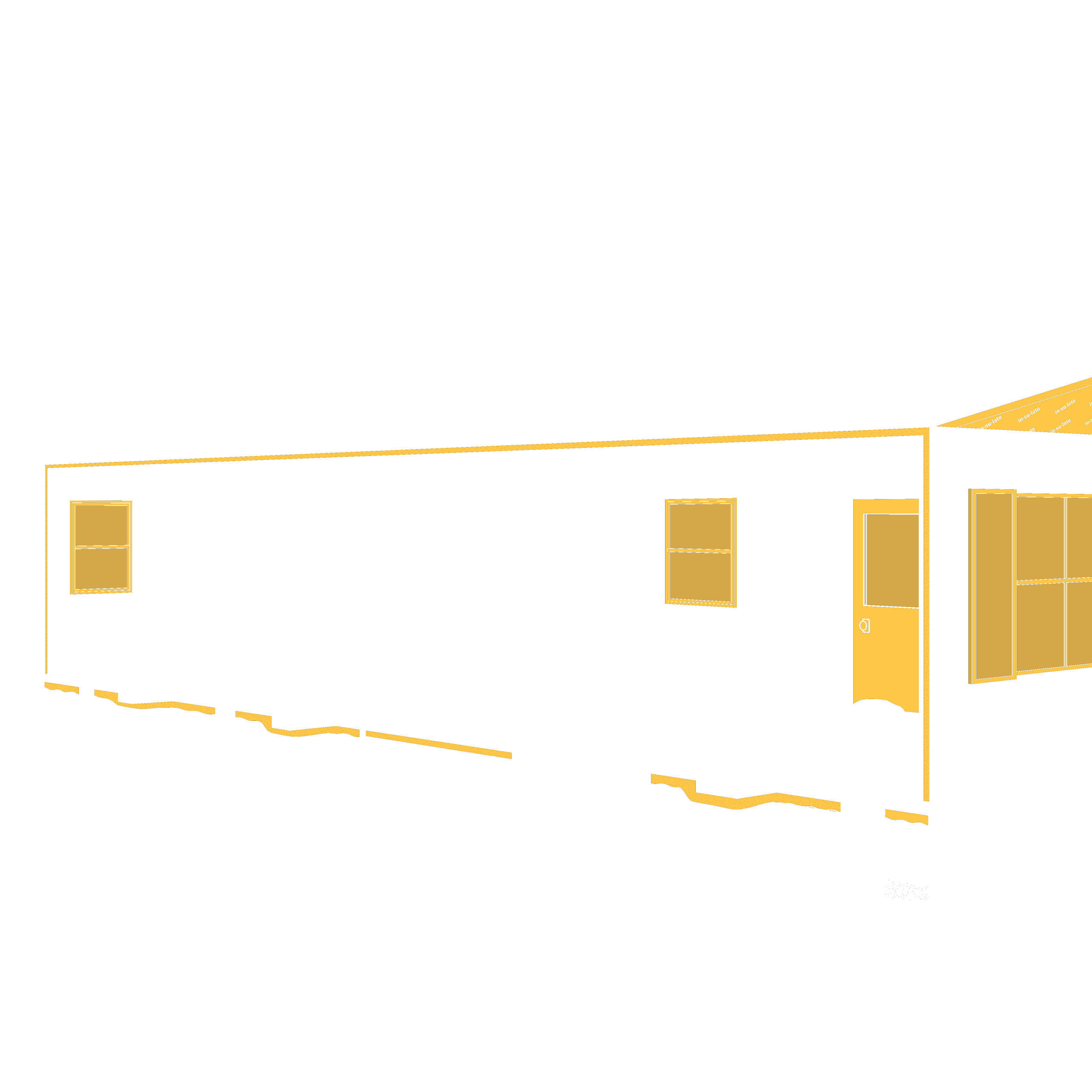
Central Air Source Heat Pump for a Manufactured Home
Click on the ‘hot spots’ in the interactive image below to learn more about your home’s recommended heat pump plan with videos, photos, and more. Then, scroll down to view benefits, key considerations, cost information, and questions for your contractor.
Cold-climate air source heat pumps use electricity to provide 2-in-1 heating and cooling that is safe, sustainable, and versatile.

Comfort
Cold-climate heat pumps distribute gentle, steady streams of warm (or cool) air to keep you comfortable — even on the hottest summer days and the coldest winter nights.

Lower Energy Bills
The monthly cost of heating and cooling your home with a heat pump is typically less than oil, propane, or electric resistance heating (such as baseboards).

High Efficiency
Sustainable heating and cooling that is up to 3x more efficient than traditional fuel systems.

Convenient
Heat pumps require less maintenance, fewer service calls, and no fuel deliveries.

Installation Rebates
You may qualify for incentives from your electric utility company to lower your costs.

Safety and Peace of Mind
No more flames or fumes. Heat pumps can improve your home’s indoor air quality and reduce your risk of carbon monoxide poisoning by not burning fossil fuels.

Cleaner and Greener
Not only are heat pumps good for your wallet, they are good for the planet too. Heat pumps use electricity to heat and cool your home, reducing your carbon footprint when compared to a system that requires you to directly burn fossil fuels and emit carbon.
- A central air source heat pump system can replace your current central AC in its entirety.
- Your electric service may need to be upgraded to support your new heat pump.
- To get the most comfort and efficiency from your system, use the time between ordering your system and installation to improve your home’s insulation and air sealing.
- Central air source heat pump systems provide great design flexibility by taking advantage of existing ductwork, but some ducts may need to be air sealed, insulated, and/or re-sized to maximize their efficiency.
- Did you know that you may be able to use a heat pump for your home’s hot water needs as well? This can help you save even more energy.
Installation Cost:
Cost may vary by region, installation complexity, installer experience, system size, efficiency, and manufacturer.
- Rebates are available when you work with a participating New York State Clean Heat contractor — check to see what you may qualify for.
- New York State has low-interest financing options available to help make the purchase and installation of a heat pump more affordable.
- Central air source heat pump systems take advantage of your existing ductwork, which could mean less work for you and your contractor.
Operating Cost:
- Your overall heating costs will likely decrease if switching from oil, propane, or electric resistance heating (such as baseboards).
- If you previously heated with fuel, don’t be surprised to see electric bills increase. However, your fuel bills will drop or disappear, which may offset the increase to your electric bills.
- As is the case with any heating system, efficient homes that have been professionally air sealed and insulated have much lower operating costs.
- Cold-climate heat pumps are more efficient than other air conditioning systems, saving you more money during the summer.
- Cold-climate heat pumps last about 15 years and require minimal maintenance.
- What size unit do I need?
- Can the heat pump you are recommending sufficiently heat my home, or is an additional system needed?
- Is the heat pump you are recommending on the Northeast Energy Efficiency Partnership (NEEP) cold-climate product list? Note: It is reasonable to ask your installer for a copy of the spec sheet from the NEEP website.
- What are my best placement options for the outdoor unit(s)?
- How long will installation take? Where and when will you need access?
- Will I need to update my electric service?
- How do I operate my system for optimal comfort and efficiency?
- What maintenance is required? How often should I clean or change air filters? Is annual service needed?
- What is the expected lifespan and warranty?
- How can I make any additional upgrades to my home, such as adding insulation or air sealing, to prepare for a heat pump? Do you have an insulation contractor I can work with?
- Is my home a good fit for a heat pump water heater as well? Do you have a contractor I can work with for this additional project?
Find an expert to help with your residential heat pump project. Incentives may be available from your electric utility company when you work through a NYS Clean Heat participating contractor.





